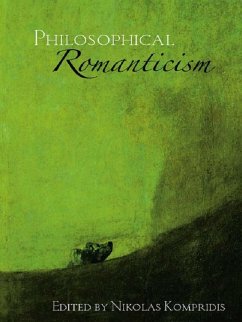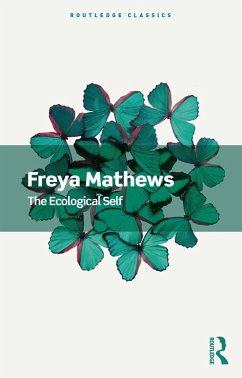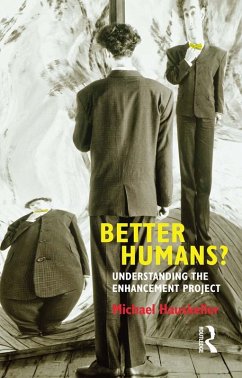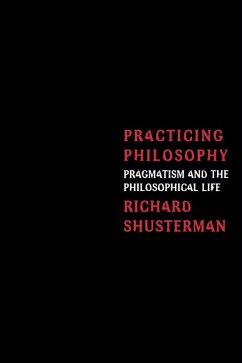
Philosophical Romanticism (eBook, PDF)
Versandkostenfrei!
Sofort per Download lieferbar
39,95 €
inkl. MwSt.
Weitere Ausgaben:

PAYBACK Punkte
20 °P sammeln!
Philosophical Romanticism is one of the first books to address the relationship between philosophy and romanticism, an area which is currently undergoing a major revival. This collection of specially-written articles by world-class philosophers explores the contribution of romantic thought to topics such as freedom, autonomy, and subjectivity; memory and imagination; pluralism and practical reasoning; modernism, scepticism and irony; art and ethics; and cosmology, time and technology.While the roots of romanticism are to be found in early German idealism, Philosophical Romanticism shows that i...
Philosophical Romanticism is one of the first books to address the relationship between philosophy and romanticism, an area which is currently undergoing a major revival. This collection of specially-written articles by world-class philosophers explores the contribution of romantic thought to topics such as freedom, autonomy, and subjectivity; memory and imagination; pluralism and practical reasoning; modernism, scepticism and irony; art and ethics; and cosmology, time and technology.
While the roots of romanticism are to be found in early German idealism, Philosophical Romanticism shows that it is not a purely European phenomenon: the development of romanticism can be traced through to North American philosophy in the era of Emerson and Dewey, and up to the current work of Stanley Cavell and Richard Rorty. The articles in this collection suggest that philosophical romanticism offers a compelling alternative to both the reductionist tendencies of the naturalism in 'analytic' philosophy, and deconstruction and other forms of scepticism found in 'continental' philosophy.
This outstanding collection will be of interest to those studying philosophy, literature and nineteenth and twentieth century thought.
While the roots of romanticism are to be found in early German idealism, Philosophical Romanticism shows that it is not a purely European phenomenon: the development of romanticism can be traced through to North American philosophy in the era of Emerson and Dewey, and up to the current work of Stanley Cavell and Richard Rorty. The articles in this collection suggest that philosophical romanticism offers a compelling alternative to both the reductionist tendencies of the naturalism in 'analytic' philosophy, and deconstruction and other forms of scepticism found in 'continental' philosophy.
This outstanding collection will be of interest to those studying philosophy, literature and nineteenth and twentieth century thought.
Dieser Download kann aus rechtlichen Gründen nur mit Rechnungsadresse in A, B, BG, CY, CZ, D, DK, EW, E, FIN, F, GR, HR, H, IRL, I, LT, L, LR, M, NL, PL, P, R, S, SLO, SK ausgeliefert werden.













